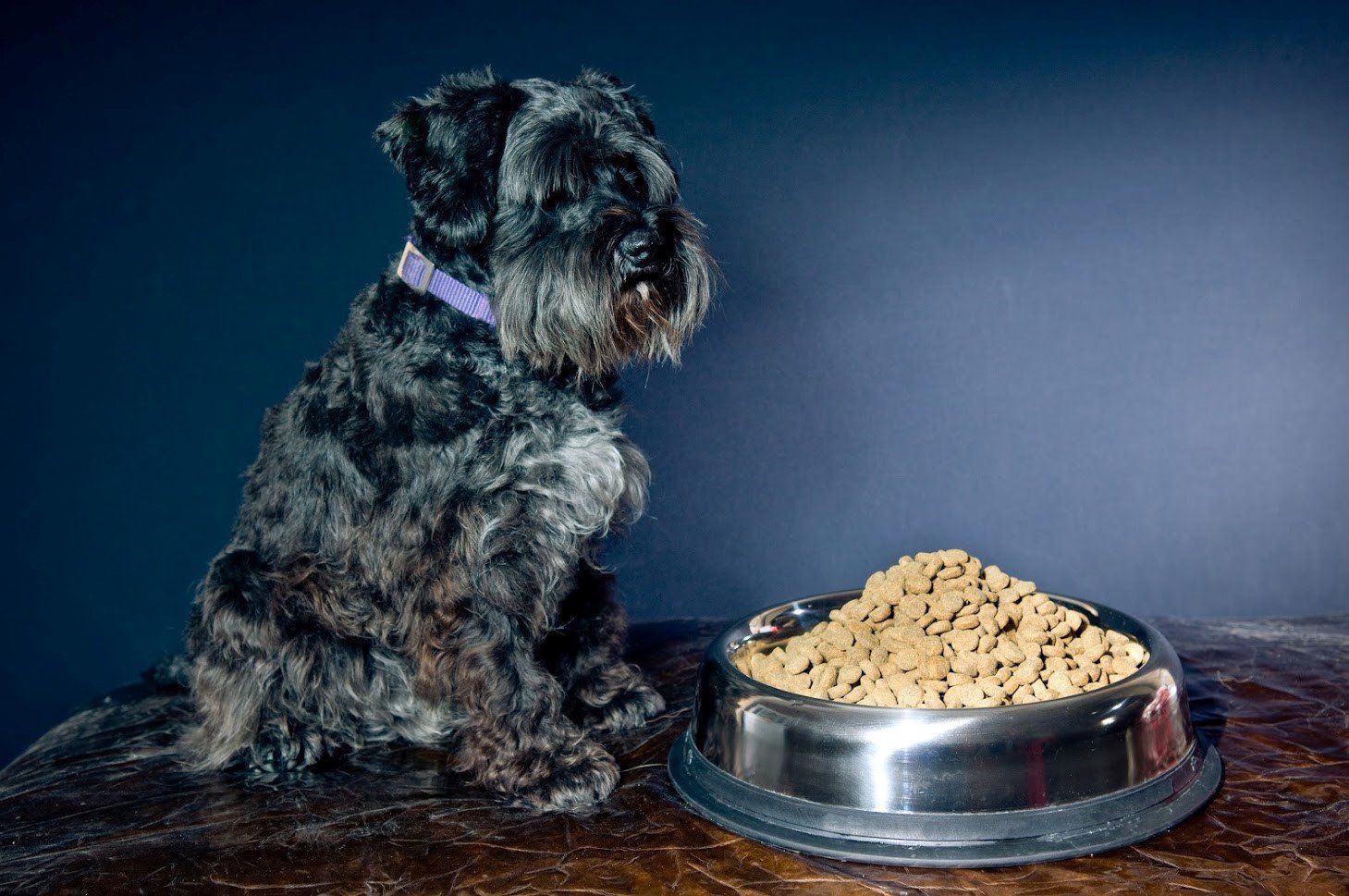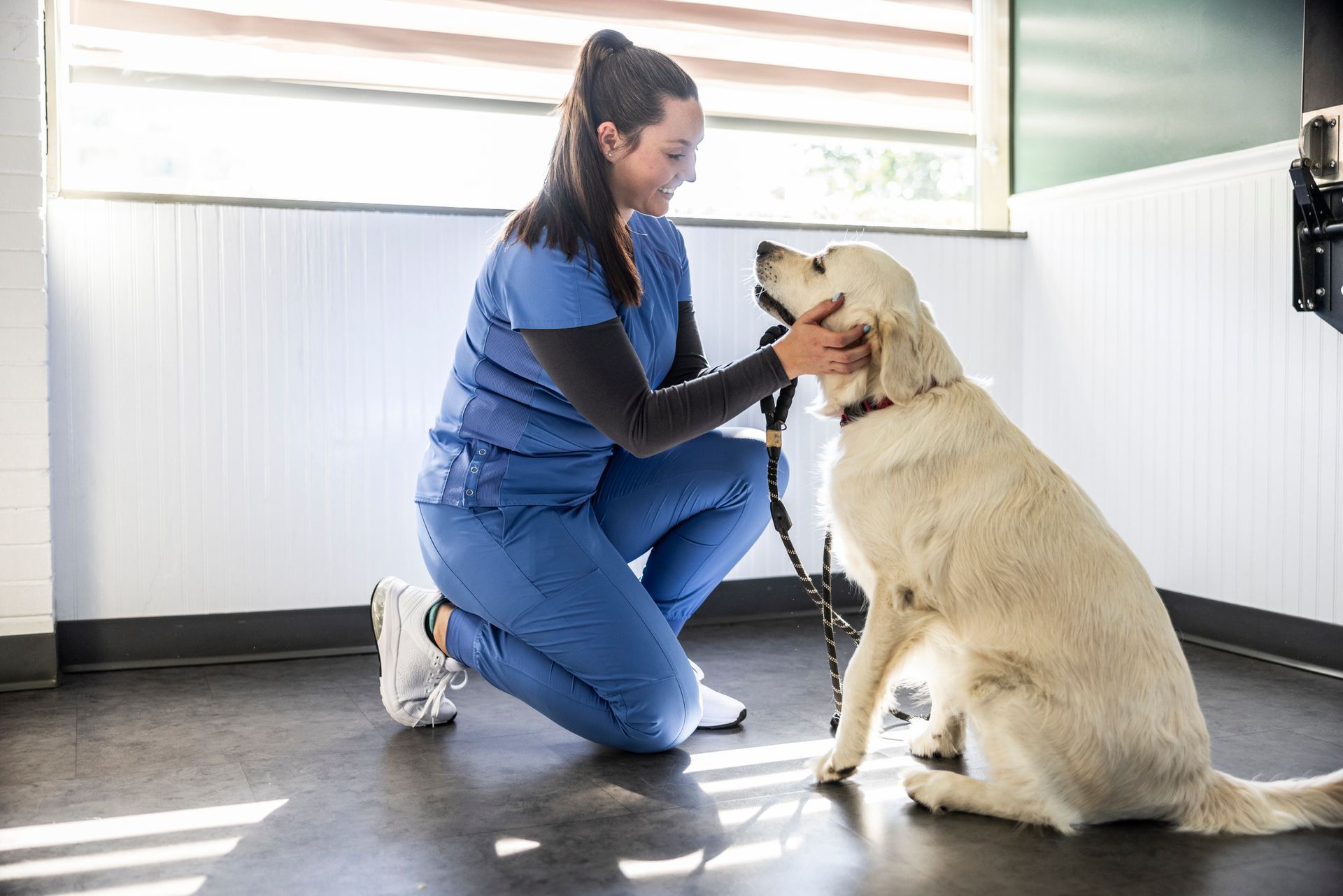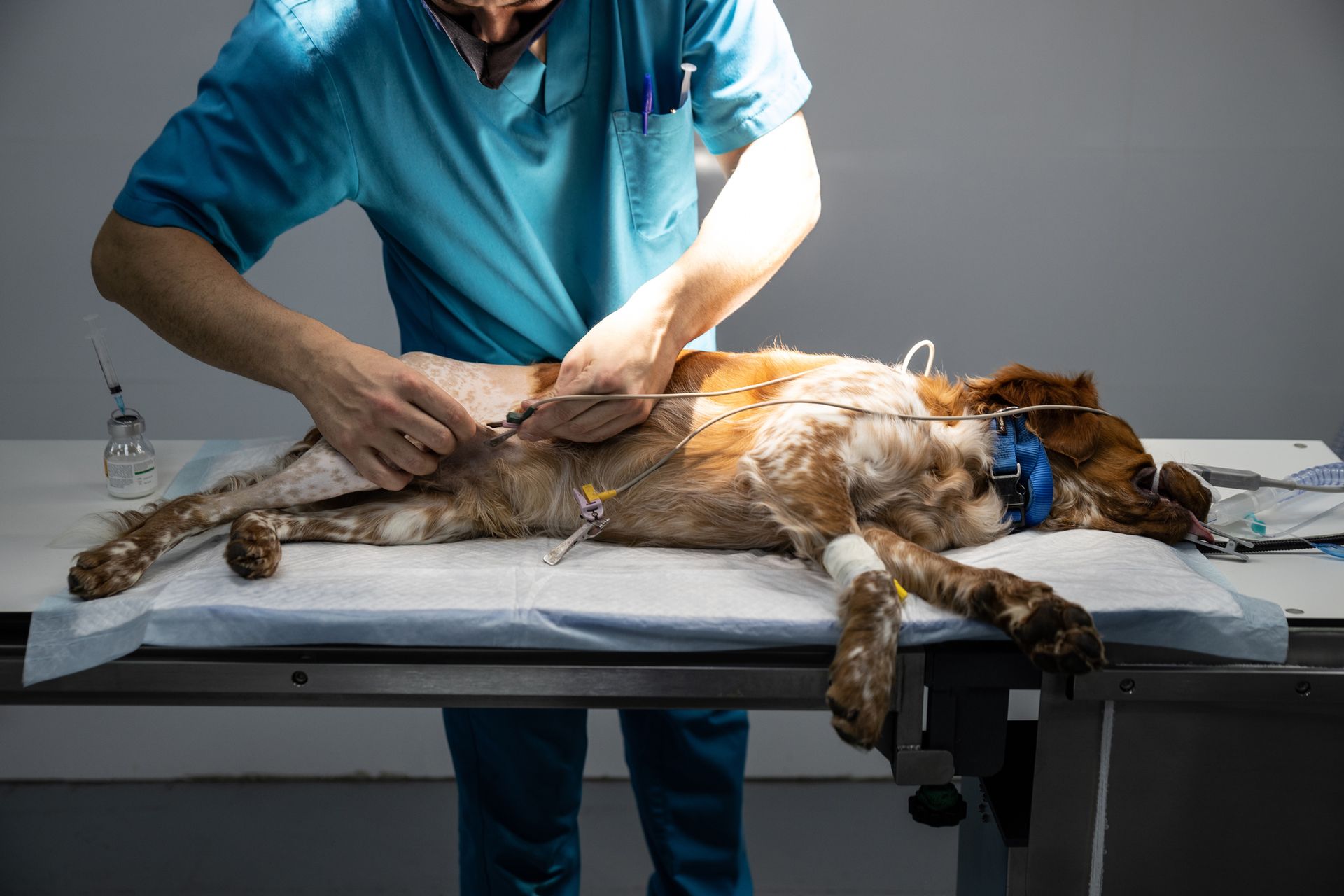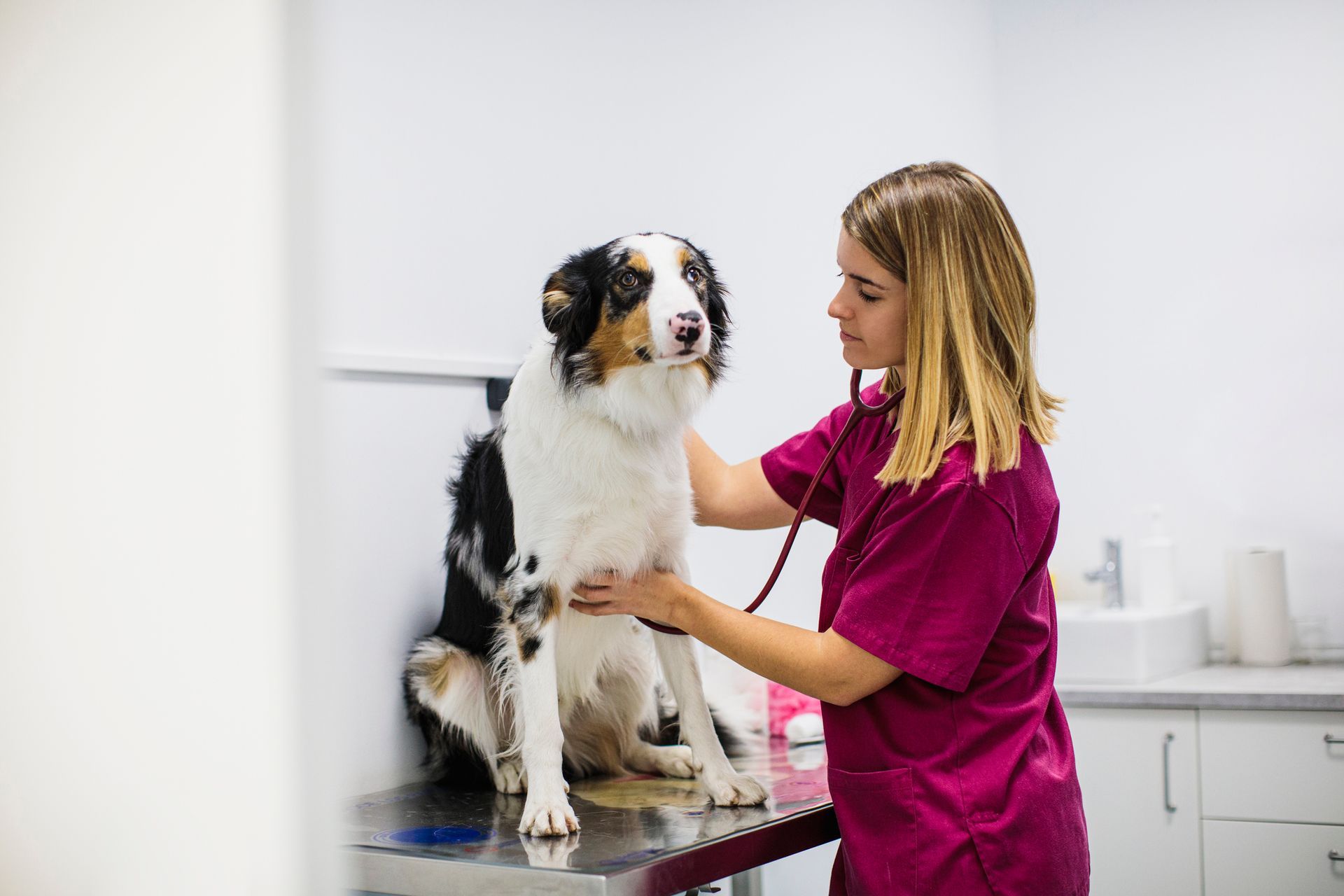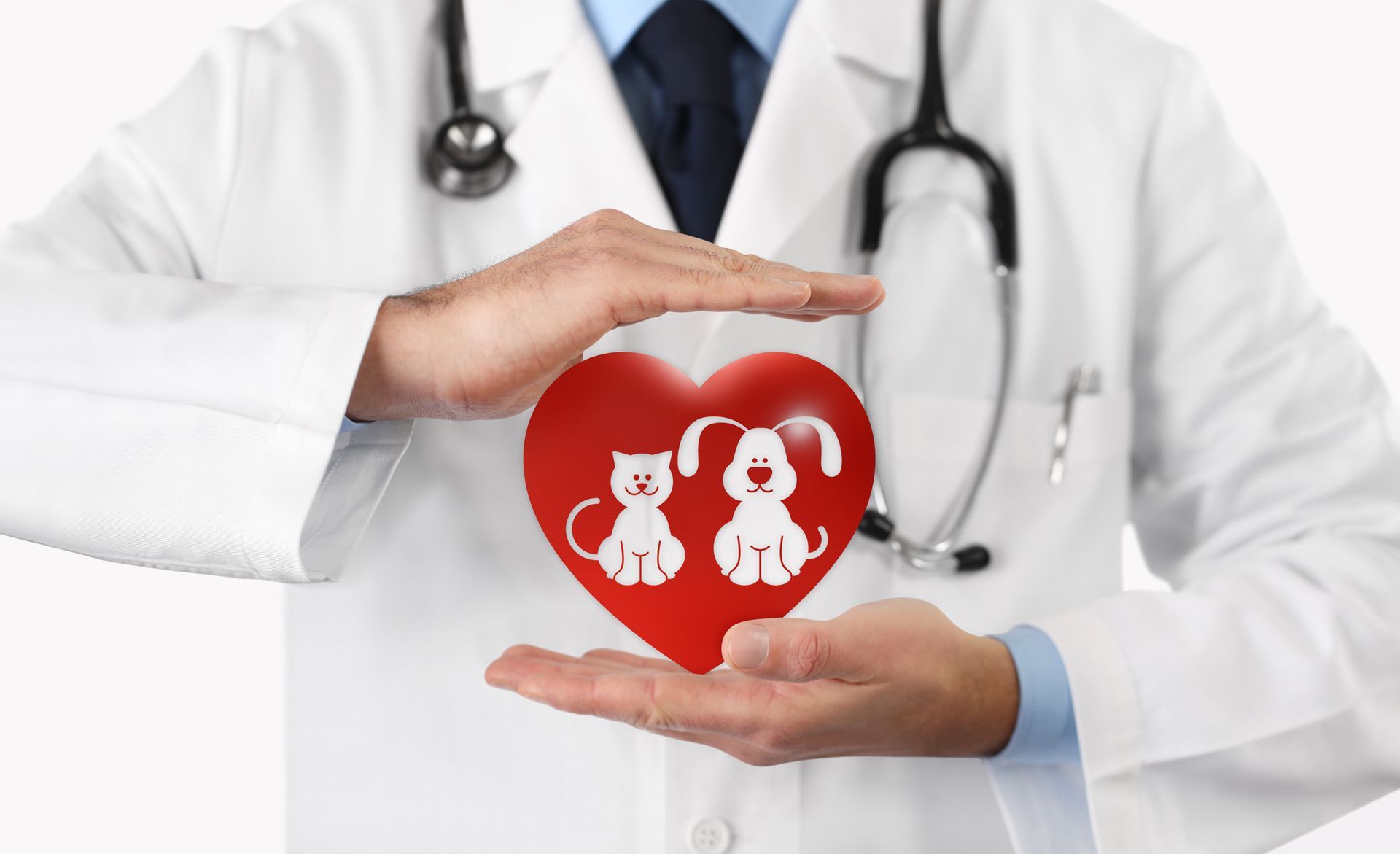A Dog Owner's Guide to Bloat: Questions and Answers
Medical emergencies in dogs don't necessarily always involve traumatic accidents, poison ingestion, or devastating chronic illnesses. Even the routine act of consuming a meal can have serious consequences if your pet develops a problem known as bloat. This acute digestive problem can cause death without prompt treatment.
If you worry about the health and safety of your dog's eating habits, you can benefit from understanding how bloat occurs, how you should respond to it, and what you can do to safeguard your dog against it. Take a look at these questions and answers concerning bloat in dogs.
What Causes Bloat?
Under normal circumstances, food, air, and water that enters your dog's stomach passes easily into the small intestine for processing by the rest of the digestive system. However, some dogs' stomachs may accumulate an excessive amount of gas or fluids too rapidly. This overload causes the stomach to swell up.
Your dog's physical structure may make it especially vulnerable to bloat. The condition tends to affect large, deep-chested dog breeds such as Great Danes, Irish Setters, Standard Poodles, Saint Bernards, and Gordon Setters. However, it can also afflict smaller breeds such as Yorkshire Terriers and Dachshunds.
Dogs that exercise right after eating or suffer from emotional stress may develop bloat. Oversized portion sizes can also encourage the development of the condition.
Why Does Bloat Pose Such Danger to Dogs?
If a bloat-afflicted stomach continues to produce gas, it may expand until nothing can enter or exit the organ. This expansion can interfere with breathing, inhibit blood flow to the heart, or even cause the stomach wall to rupture.
A bloat-afflicted, gas-filled stomach may rotate, with the twisting action cutting off the organs’ entry and exit passages. This complication, known as volvulus, can cut off blood flow to the digestive organs, allowing critical tissues to die and putting your dog into a state of life-threatening shock.
Gastric dilatation and volvulus can cause death in minutes without emergency intervention. Even if your dog does not have a twisted stomach, the expansion from the bloat can endanger its life.
How Do Dogs Display Symptoms of Bloat?
A case of simple gastric dilatation may produce all the classic symptoms of a stomachache. Your dog may pant, drool, pace restlessly, and try to vomit without success. However, you will probably notice that your dog's abdomen has also become distended, a sign that gas, food, and liquids have become trapped.
As your pet's condition progresses to volvulus, the symptoms may become even more alarming. Your pet may show signs of shock such as pale gums, breathlessness, weakness, rapid heartbeat, and loss of consciousness.
How Do Veterinarians Treat Bloat?
Veterinarians can diagnose gastric dilatation and volvulus quickly and easily, not only by observing the obvious physical symptoms but also by taking X-ray images of the digestive organs. Your veterinarian may also tap at the swollen abdomen, listening for a hollow sound that confirms the presence of bloat.
In a case of bloat that doesn't involve a twisted stomach, the first treatment priority involves relieving stomach pressure. The veterinarian can often achieve this goal by placing a tube down the dog's throat and into the stomach, permitting gases to ventilate.
If the stomach has enlarged to the point that the entrance to it has become closed off, the veterinarian can relieve stomach pressure through other means. For example, your veterinarian may insert a needle into your pet's stomach to draw out accumulated gas or fluids.
If your dog has a twisted stomach, it will most likely need emergency surgery to correct the problem. The veterinarian will enter the abdominal cavity, undo the rotation, and check the surrounding tissues and blood vessels for damage. A procedure called gastropexy then anchors the stomach's position so it can't rotate.
What Can Dog Owners Do to Prevent Bloat?
Your dog doesn't have to undergo major surgery, endure emergency treatment, or experience the agonies of bloat. You can take several steps to prevent the condition and help your pet enjoy a safer, healthier everyday life.
You may have heard that you should raise the level of your dog's food bowl to discourage bloat. However, research indicates that this strategy not only fails to prevent bloat but may even promote it in animals at risk for the condition.
Instead of elevating your dog's food bowl, focus on serving the right kinds of food in a healthy manner. Serve a mix of dry and wet foods, emphasizing proteins over carbohydrates and additives. Serve small portions over multiple meals instead of one giant meal per day. Avoid yeast or other gas-producing ingredients.
Another gas-reducing strategy involves feeding your dog a probiotic diet or probiotic supplements, which aid in digestion. You might even consider giving your dog an over-the-counter anti-gas medication. Ask your veterinarian about specific products and dosages.
Control your dog's activity level at mealtimes. Don't let your dog exercise or even play aggressively immediately after eating. These actions could impede digestion, allowing gas to build up and the stomach to twist.
Don't let bloat threaten your dog's life. Contact South Seattle Veterinary Hospital for instructions and to arrange for emergency treatment.

